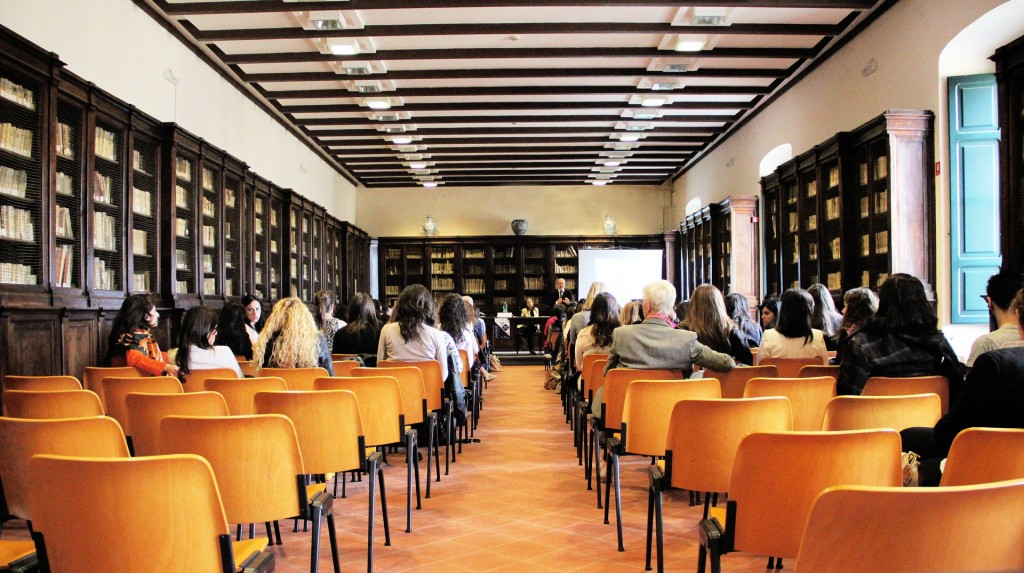Talking it up
Yesterday, I had the very great pleasure of giving a lecture at the Marryat Players Chamber Festival in Wimbledon. Over the course of the weekend, professional musicians and students from the Yehudi Menuhin school are performing side by side in repertoire by Haydn, Beethoven, Mendelssohn, Korngold, Enescu, Elgar, Shostakovich and others. And in between the various concerts in the programme, at four o’clock, I made my way onto the stage to spend an hour talking about the cities with which many of these composers had connections: Leipzig and Vienna.
I’m not entirely sure why, since I’ve been giving talks for a number of years now, but I suddenly became acutely aware, as the audience began to assemble, that these people were here specifically to see me – that they had paid, in fact, to watch and listen to me talking. I have always been of the opinion that talking about music is important, revealing, a valuable means of understanding what we are listening to… but somehow, the notion in that moment seemed ridiculous. People pay for music, don’t they? Not talking?
Once the talk was done, and I’d chatted with some of the very interested, and indeed interesting, members of the audience, I took some time to reflect on this sudden pre-lecture panic. I was reminded of the very thing on which I’d written last week, the Wigmore Hall online archive, which contains records of the likes of John Buchan delivering lectures. I also thought of one of the most exciting projects of my summer: a series of talks at the Ryedale Festival, which includes an interview with Sir James Macmillan, and introductions to the Beethoven late quartets ahead of their performance by the Heath Quartet – each piece paired with one of T.S. Eliot’s Four Quartets read by Jeremy Irons. People do indeed value talking. But somehow, positioning this is hard.
There is something about the word ‘lecture’. ‘Don’t lecture me’, we tell our parents and friends, as if their pompous proselytizing were the worst possible thing to experience. At university, the lecture as a format is increasingly maligned since it doesn’t promote ‘active learning’, and requires silent attention directed at a single authority figure which is now seen as hopelessly old-fashioned. And I have met plenty of music students in my time who are there for the playing, the composing, the doing, and cannot understand why they are forced to sit through such dry, dusty things as lectures, which have nothing (as far as they can see) to do with their chosen career. Perhaps this is why the notion of the lecture struck me as having negative connotations?

And yet. What do we now espouse as the new model of learning? Podcasts and videos. What do these things generally involve? Silent attention directed at a single authority figure. With a few more pictures, the odd video, and a click-through quiz at the end, but even so, the bottom line is: sometimes, we need to be quiet and listen. After all, the very word ‘lecture’ comes from a middle English version of a Latin word, meaning ‘the act of reading’. We set reading for our students. We read for pleasure. We listen to audio books if we’d rather not stare at a page. And as Stephen Fry reads his way through the complete Harry Potter into our earphones, he is, linguistically speaking, lecturing us.
The bottom line of all of this is that I need to get over myself and accept that to talk about music is a valuable act – and a complementary one to playing the music itself. But I do wonder if the whole business of talking to an audience needs a bit of a makeover. At several pre-concert talks I’ve given recently (most of which are free for concert audience members to attend), I’ve been greeted afterwards by enthusiastic listeners who have come to tell me that they weren’t quite sure whether or not they were going to enjoy the talk, you know, because lectures on this sort of stuff can sometimes be a bit dry, but actually they’d really loved it! Delighted as I am by these ringing endorsements of my own speechifying, it seems that such events are viewed by some as the musical equivalent of worthily eating a bowl of All-Bran: knowing you probably should and it’s terribly good for you, but not really sure whether it’s an entirely pleasant experience.
So, much like making a cup of coffee and a bacon sandwich, or cleaning shoes, or making a suit, or handwriting, perhaps it’s time to appreciate more that, just because we can pretty much all talk, it doesn’t mean that everyone can do it well (particularly in front of other people). And weaving talks into a programme takes a bit of time and effort, some careful thought and research and, if you’re me, at least a few jokes. Some venues and organisations could do to think harder as to how speakers are incorporated into their programmes – and how they are advertised, too, without assuming that what they have to say will only be of interest to a handful of people prepared to read the 8-point text under the concert description. Some speakers need to think less about their own obsession with their subject, and more about how the people in front of them are receiving it and what they are likely to know and appreciate. And somehow, we need to reclaim the notion of the lecture, and ‘the academic’, as one of inclusive rather than exclusive territory. We are performing too, after all, when we give such talks, and ‘entertainment’ is not a dirty word if it goes with ‘engaging’ and ‘thoughtful’. And once the panic yesterday had abated, and I stood up to get on with the lecturing, I immediately relaxed. The act of reading, in all its forms, is one of my favourite things.
